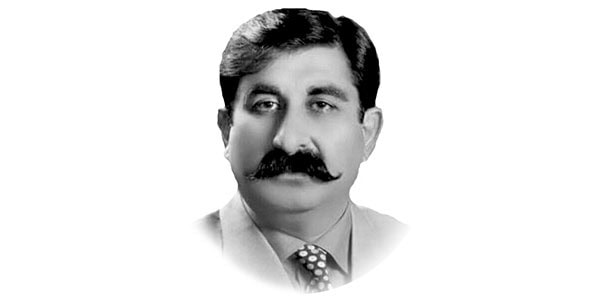Is Imran’s inning over?
AS far as governance was concerned, the PTI government had totally failed. Imran Khan’s tumultuous term has ended, following weeks of high political drama and days of constitutional chaos.
Imran’s PTI lost the support of coalition partners, denying a majority he needed to defeat a no-confidence vote.
The Supreme Court’s landmark verdict late restored a parliament that Imran had sought to dissolve and mandated a vote of no confidence that he sought to avoid.
Imran has urged supporters to take to the streets to protest his removal. His political demise was rooted in twin new realities.
Inside parliament, his PTI had lost the support of coalition allies, denying him the majority he needed to defeat the vote of no confidence.
Outside parliament, he appeared to lose the support of Pakistan’s powerful Establishment, which the opposition alleged helped him win the 2018 general election, and had recently publicly fallen out with the prime minister over senior military appointments and policy decisions.
As the principal opposition parties, the PPP and PML-N, ramped up their efforts to dislodge Imran, coalition allies became vocal in their dissatisfaction with him. The sour mood among Imran’s erstwhile allies was echoed.
The BAP was not happy about its share in the federal government and the ministerial portfolio it has been given. There was disgruntlement for the past two years.
Imran publicly talked about the poor but privately he surrounded himself with wealthy investors. People impressed by Imran’s anti-corruption platform were tired of the status quo.
A deepening economic crisis contributed to dissatisfaction with Imran with double-digit inflation dogging much of his term. Inside parliament, the loss of the allies’ support reversed the numbers for Imran.
The BAP, MQM and PML-Q account for fewer than five percent of the seats in the 342-member National Assembly.
But by pledging to support the no-confidence vote against Imran, the coalition allies effectively ended Imran’s over three and a half year spell as premier.
The opposition parties also claimed to have the support of 22 dissident PTI parliamentarians but the objective was achieved without the votes of the PTI dissidents.
The economy is in parlous state. The two biggest economic challenges facing Pakistan at the moment are high inflation and fast depleting foreign exchange reserves.
The difficulty is that as the currency has been devaluing due to decreasing reserves, it gives rise to even more inflation.
With Imran’s exit confirmed, former allies are increasingly candid about the third rail of Pakistani politics: civil-military relations.
The premier’s parliamentary support began to dissolve when the military signalled it would not side with Imran against the opposition, a policy of ‘neutrality’.
When the establishment became neutral, the allies saw that the government couldn’t survive.
Once the view was entrenched that he can’t stay, it was only a matter of time.
Imran Khan is the latest in a long line of Pakistani premiers who have fallen out with the military over key appointments and foreign policy.
In October, simmering civil-military tensions exploded in public view when Imran tried to retain Lieutenant-General Faiz Hameed as the military spy chief, rejecting the nominee of army chief General Qamar Javed Bajwa.
General Bajwa’s nominee, Lieutenant-General Nadeem Anjum, was eventually appointed as the new DG ISI, but the weeks-long standoff was bruising and ominous.
General Bajwa’s second term as army chief will end in November, with General Faiz Hameed one of the senior-most generals eligible to replace him.
On Imran’s position on war on terror is that we fought America’s war and suffered loss of men and material. Military’s view was that it was the fallout of the Afghan war and we had no choice.
Pressure on military leadership is if it was America’s war, then all the sacrifices of young officers and soldiers were a waste. The tension with the military also concerned Imran’s style of governing.
On policy matters, Imran could be mercurial. There was no predictability or stability. While the Pakistani military backed Imran’s Moscow trip, differences intensified after Imran made a high-stakes domestic pivot.
Faced with defeat in the no-confidence vote in parliament, Imran alleged a US-led plot to remove him as punishment for his Russia trip and neutral foreign policy.
As evidence of the plot, he waved a letter in a public rally in Islamabad on March 27, claiming the US had delivered a diplomatic warning to Pakistan to remove him as premier.
The diplomatic missive, the alleged US threat, and Imran’s claim that the no-confidence was part of a US-led conspiracy roiled Pakistani politics and civil-military relations.
The letter warranted a strong response and corrective measures. Response in the military is mixed on whether it should have been used to meddle with the vote of no confidence.
A number of differences between Imran and the military leadership that had accumulated over Imran’s time in office, including poor political and economic management by Imran that was acting as a drag on the military’s public image.
The cyclical nature of Pakistani politics has seen former premiers rebound before. Imran also has the advantage of clawing his way back to power from a fertile political base. Imran is a populist, that’s his vulnerability too.
Defeated inside parliament and undone outside, Imran though is unlikely to be a spent force politically. Is Imran”s inning over?
—The writer is editor, book ambassador, political analyst and author of several books based in Islamabad.










